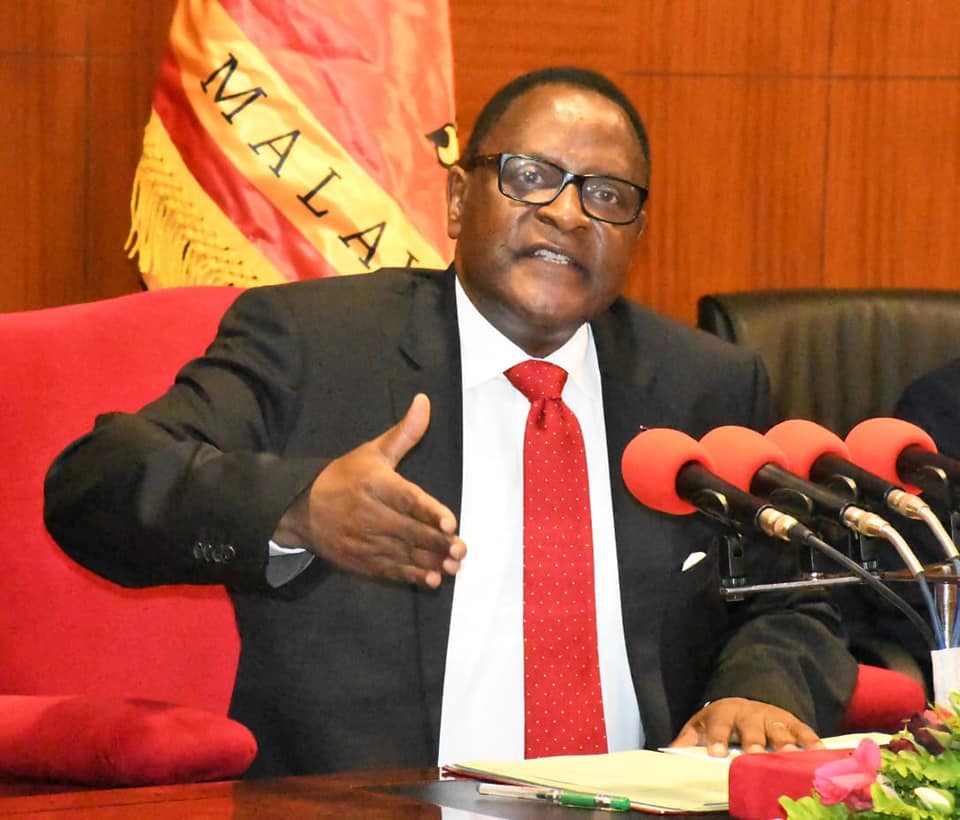It is extraordinary that Malawi President Dr. Lazarus Chakwera is the new Chairperson of the Southern African Development Community (SADC). SADC is one of the African blocks with all the ingredients to propel social economically. Chakwera must use his position to accelerate economic or regional integration in the region.
SADC has some countries that are landlocked including Malawi. Some countries in the SADC region such as South Africa and Mozambique border oceans. Their geographical settings help them to easily trade with the rest of the world. Water transport is the cheapest among all the modes of transport in the world. The existence of the oceans makes it easy for some SADC countries to export goods to the wider world hence registering a positive Balance of Payment (BOP).
The presence of the oceans in other SADC countries must benefit all countries in the region. Dr. Chakwera must make sure that some trade barriers that hinder economic growth are reduced or eliminated completely. SADC countries must at least ease the transportation of the goods from the ports to the landlocked countries. It is obvious that there are some barriers that also suffocate the exportation of goods to other continents such as Europe and South or North America using the ports by the landlocked countries. The barriers contribute to a negative Balance of Payment in the landlocked countries within the SADC region.
It is the duty of Chakwera to among others engage the Mozambican Government to actualize the dream of the late Malawi President Professor Bingu Wa Mutharika. The late Bingu wanted Malawi to have its own in-land port in Nsanje district. Dr. Chakwera must use his position to make Bingu’s dream a reality. The dream can come true if SADC countries need to make equal strides in social-economic development.
SADC is a rich block with all the natural resources. The region has all the types of minerals such as Gold In South Africa, Copper in Zambia, Bauxite, and Uranium in Malawi among other countries. The region also has Oil in the Democratic Republic of Congo.
Did you know that according to United States’s International Trade Administration, oil and gas discoveries in the east of the country give the DRC the second-largest crude oil reserves in Central and Southern Africa after Angola? These reserves are primarily located in the four major lakes bordering Tanzania, Burundi, Rwanda, and Uganda. The DRC has proven reserves of 180 million barrels, though estimates of total petroleum reserves exceed 5 billion barrels. Currently, Congolese oil production is limited to the Coastal Basin, yielding 25,000 barrels per day of offshore production, all of which is exported.
These are the treasures that the SADC region must revitalize for its growth. The SADC region must increase sharing of the labor to benefit the region. It is obvious that some SADC countries have minerals but with no capacity to utilize such natural resources due to lack of expertise or enough energy. SADC has other countries that are economically stable. South Africa and Tanzania are good examples of such countries in the region. Following two decades of sustained growth, Tanzania reached an important milestone in July 2020, when it formally graduated from a low-income country to lower-middle-income country status, World Bank announced.
Countries in the region must increase the exchange of experts to benefit countries that are still struggling to develop such as Malawi. The game can now be played outstandingly since the Malawi president is the leader of the SADC region. Dr. Lazarus Chakwera must work hand in hand with other SADC leaders from August 2021 to August 2022 to remove all the barriers that suffocate trade in the SADC region. Business players in the region must be allowed to move freely within the region. Removal of the trade barriers will help SADC countries increasing their trade ventures hence booming their economies for the benefit of the people.
The Southern African Development Community is a Regional Economic Community comprising 16 Member States; Angola, Botswana, Comoros, Democratic Republic of Congo, Eswatini, Lesotho, Madagascar, Malawi, Mauritius, Mozambique, Namibia, Seychelles, South Africa, Tanzania, Zambia, and Zimbabwe.
Established in 1992, SADC is committed to Regional Integration and poverty eradication within Southern Africa through economic development and ensuring peace and security.




















